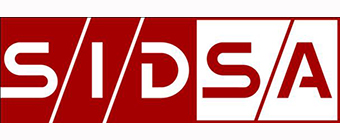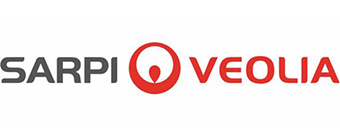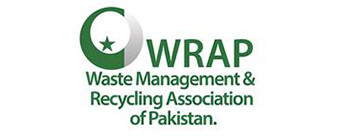
中国动力工程学会是全国动力工程科技工作者的学术性群众团体,是中国科学技术协会的组成部分,它的前身是1962年成立的中国机械工程学会透平与锅炉学 会,1979年更名为中国机械工程学会动力工程学会。根据我国动力工程学科发展需要和广大动力工程科技工作者的要求,1988年12月经国家科委批准成为 国家一级学会——中国动力工程学会,1992年8月加入中国科协。
本会是以发电热动力机械设备的研究、设计、制造为中心的多专业的综合性学会。它设有透平、锅炉、水轮机、核电、热力、工业煤气、自控、材料、环保技术与装 备、新能源设备、工业气体等11个专业委员会以及学术、组织、国际合作、编辑出版、咨询与展览等5个工作委员会。

WMRAS is committed to the following objectives for which it was constituted:
To enhance professionalism and capabilities of members by promoting commerce and trade; striving to achieve and maintain the highest standards of excellence for practice, competence and conduct in waste management and recycling industry.
To provide a platform for the members to come together to identify and address the environmental concerns and issues in the waste management and recycling industry.
To promote waste reduction, recycling and reuse and recovery; and create public awareness on the waste management and recycling industry as well as environmental and industry concerns.
To foster information exchange, networking and closer relationship among the members and between government, industry and people.
To provide professional development and upgrading opportunities for the members by organizing industry and/or technology updates conferences, business mission trips, training workshops as well as through other forms of media such as newsletters, exhibitions etc.
To advance the scientific, technical and practical aspects of waste management and recycling.
To liaise and establish affiliations with local, national, and international organizations with similar purposes and concerns.

With over 16 years of history, HKWMA is the premier organization representing professionals in Hong Kong’s waste management and environmental industries. Within some 200 individual and organizational members, we are represented by some of the best professionals in the local arena, as well as active players internationally. HKWMA also keeps close contacts with our counterparts such as the Chinese Association of Urban and Environmental Sanitation (CAUES) in China and other professional bodies in Macau and Taiwan.

Korea Society of Waste Management (KSWM) was established to develop all area of waste management in a scientific manner and contribute to social evolution. Journal of Korea Society of Waste management is published by the KSWM. It is a general journal for the publication of significant research results in all areas of waste management.

(WASTE MANAGEMENT ASSOCIATION OF MALAYSIA)
The Association shall be known as the Persatuan Pengurusan Sisa Malaysia (Waste Management Association of
Malaysia) hereinafter referred as the “Association".
Its registered place of business shall be No. 20, Jalan Wan Kadir 1, Taman Tun Dr Ismail, 60000 Kuala Lumpur or at such other place as may from time to time be decided by the Committee.The registered place of business of the Association shall not be changed without the prior approval of the Registrar of Societies
Aims and Objectives
The aims and objectives of the Association shall be :
to promote and encourage the maintenance of high standards of waste management services in Malaysia in respect of solid and liquid waste, hazardous, clinical and all other types of waste;
to encourage collaboration and cooperation between all those interested and concerned with waste management;
to organise meetings, technical visits, training courses, workshops and seminars on issues of waste management;
to organise study trips to promote the transfer of practical information and ideas on waste management;
to raise funds by donations and sponsorships to further the aims of the Association subject to the conditions that prior approval be
obtained from the Registrar of Societies and the relevant authorities
to prepare working papers for discussion and to address waste management matters;
to look after the general welfare of the members; and
to establish and maintain contact with local and international organisations whose activities are related to
waste management

Japan Waste Management Association
The objectives of the association are to promote efficient waste management and to contribute to the preservation of residential environment and the improvement of public hygiene by conducting surveys and research and managing data essential to the achievement of efficient management and improvements in technology in the waste management activities of local public bodies.

National Solid Waste Association of India (NSWAI) is the only leading professional non-profit organization in the field of Solid Waste Management including Toxic and Hazardous Waste and also Biomedical Waste in India. It was formed on 25th January 1996.
MoEF, New Delhi, Government of India has identified NSWAI as one of the centers in capacity building projects of World Bank in Urban Municipal Solid Waste Management.
NSWAI helps the Ministry of Environment and Forest (MoEF), New Delhi in various fields of solid waste management in making policies and action plans and is entrusted the responsibility of collecting information and various data related to solid waste management from the municipalities of Urban Class-I cities(population more than 1Lakh) and Urban Class-II cities(population above 50,000), collate and disseminate the information to website which is linked to national and international organizations.

Indonesia Solid Waste Association

A growing set of environmental and market demands is emerging, which will require cultural and structural change within the people of the waste management industry, if the industry is to respond, to meet those demands, and to survive into the next decade.
The environmental and market demands arise from a global need for improvements in the efficiency of operations, in the economics of wealth creation activities, in the utilisation of resources and in the management of the environment.
The customers of the waste management industry are responding to internal and external pressures from their shareholders, the community, their customers and the regulators, to improve their overall performance.
These performance improvements will be measured in terms of the eco-efficiency of their operations - and the performance of our will industry will be measured in terms of the eco-efficiency of the solutions that our Members are responsible for developing.
To be effective in this challenge, the waste management industry must become pro-active in developing solutions within the operations of our customers. It will no longer be good enough to sit and wait to collect wastes and emissions at the end of the pipe.
The challenge for our Members is to create value-added goods out of the by-products of the waste generators and deliver multiple economic and environmental benefits in the process.
The waste management industry is being presented with a unique opportunity where the demand for integrated resource management services, is emerging and expected to grow rapidly, but where the supply of the requisite capabilities is lagging behind that demand.
The gap being created, through this imbalance between supply and demand, can only be capitalised upon if the waste management industry undertakes the necessary structural and cultural changes.
The WMAA has a pivotal role in fostering appropriate changes within the skill-set and cultures of its Members, to enable the industry to respond to the challenges and grasp the opportunity in advance of the gap being closed.


The Solid Waste Management Association of the Philippines (SWAPP) is a non-profit membership organization composed of solid waste practitioners from Local Government Units, National Government Agencies, Non government organizations, and the Academe. The Association was established May 22, 2000 under SEC Registration No. A200006764.
SWAPP has recently established a Satellite Resource Center at the University of Cebu-Maritime Education and Training Center, Cebu City

Environmental Management Association of Singapore (EMAS) was first established in 1986 by service providers contract cleaning, waste management and pest control industries. The aims of EMAS are to provide a cohesive platform for companies in the environmental industry to raise the professionalism of the industry and to address the common concerns of environmental and hygienic services.
Since its inception, EMAS has organised various activities such as seminar, mission trips, trainings, etc, to promote and expand the interest of its members and the Industry. EMAS also disseminates information and industry updates which are useful for both business and professional development.

The Waste-to-Energy Research and Technology Council (WtERT) is an international top-tier-technical group that brings together engineers, scientists, and managers from industry, universities, and governments with the objective of advancing the goals of sustainable waste management globally.
Do not carry on any political.
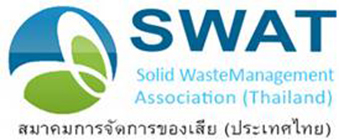
Develop and support activities related to waste management.
Raise the standards and ethics of the organization in the management of waste without causing a negative impact on the environment and public health.
Coordinate and promote cooperation Discussions As well as build relationships between academia, government and the private sector, both domestic and foreign. In driving the process of resolving the problem of waste management.
Promote and disseminate knowledge of technical aspects of waste management and public awareness of environmental issues of sustainable partnerships.
Promoting and supporting public affairs
Do not carry on any political.

Japan has become a material rich society, but a large amount of waste is not properly processed, causing serious environmental problems.
There are some hazardous and dangerous substances in the waste, and it is required to process them properly in a safe and environmentally friendly form.
Under these circumstances, the Federation of Employees is promoting various business activities to promote appropriate disposal.
We aim for the formation of a "recycling-oriented society" which is today's problem, and will work hard to establish a better industrial waste disposal system in the future in cooperation with the government, various administrations and related organizations.
The National Federation of Industrial Waste Foundation was founded in 1973 to promote proper disposal of industrial waste, contribute to the preservation of the living environment of the people and the sound development of the industry.
After that, it was incorporated into a corporation under the permission of the Minister of Health and Welfare in 1985, and since 2001 was under the jurisdiction of the Minister of the Environment.
From April 1, 2011, in the transition accompanying the reform of the public interest corporation system, we received recognition from the Prime Minister as the public interest corporation corporation, and started a new start as a national industrial waste association of the public corporation foundation.
The Federation is a public benefit corporation consisting of organizations organized by industrial waste disposal companies in prefectures.
Since its founding, in order to establish an appropriate processing system for industrial waste, we organized processing companies nationwide, developed management base, held training sessions, studied processing technology, enhanced welfare system and insurance system, specialized magazine Issuing business such as issuing.
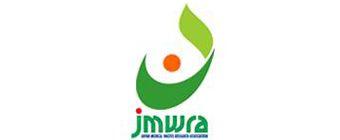 ? ?
The Medical Waste Research Group established in 1988 has about 250 members (corporations). In addition to healthcare workers, such as doctors, nurses, laboratory technicians, and others who emit waste, manufacturing and sales of industrial waste disposal and incinerators, pharmaceutical companies, medical device manufacturers, etc., various kinds of high interest in medical waste It is made up of people in the field.
The Medical Waste Research Group conducts the following activities.
Holding research lectures, workshops, processing technology seminars
Various research studies and inspection of related facilities etc.
Collection of related information (academic / technical)
Interaction with related organizations in Japan and overseas
Issued "Journal Medical Waste Research"
Sales of biohazard marks >> Click here for sticker samples
(Fax it after filling in the application form (please print and fill in) after filling in necessary information)
Other related business
We will arrange proper treatment system for medical waste through various activities and we will strive for environmental conservation so we urge you to participate as a member of this research association by all means.

Korea industrial Waste Resources Mutual-Aid Association (KIWRMA)
Legal body consisted with waste treatment companies, who treat business wastes, in Korea by the “Waste Control Act” revised in 1999
Aiming the mutual-aid business to guarantee the performance of treating neglected wastes for the association members
Got corporate establishment license from the Minister of Environment in 2000, specialized in the burning of industry wastes, which is representing the waste industry in Korea
Unfolding various businesses of survey/research of all sorts of waste materials,international exchange and cooperation as well as the policy suggestion to government for the national waste control policy and major issues

|



















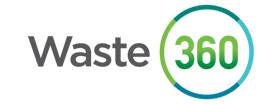
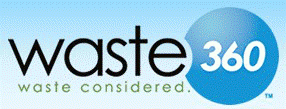








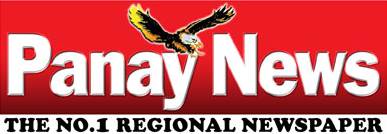
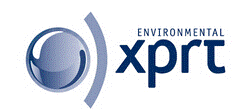








































 ?
?




